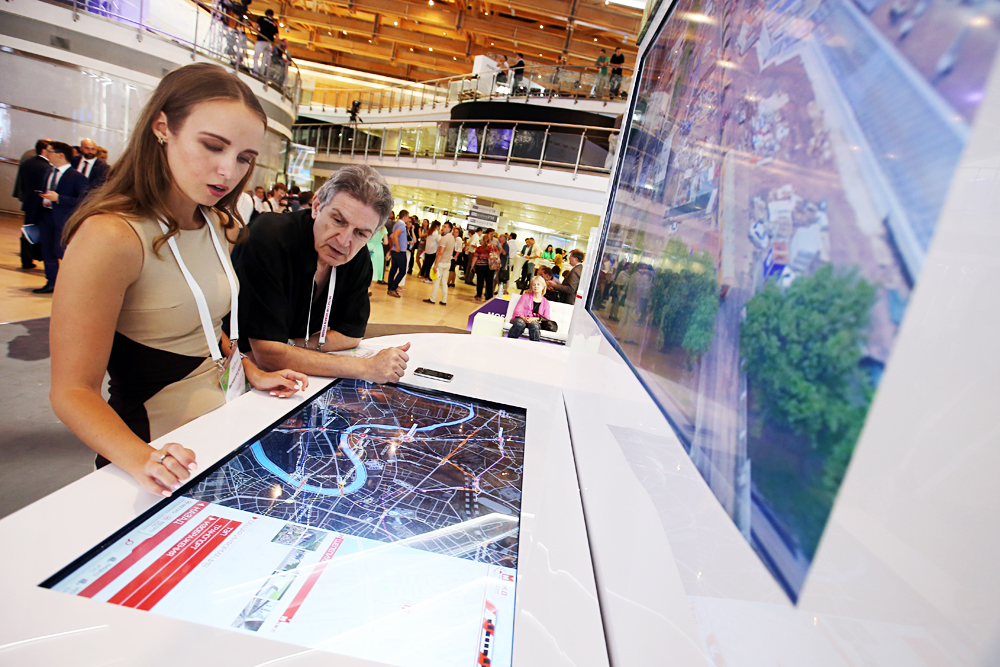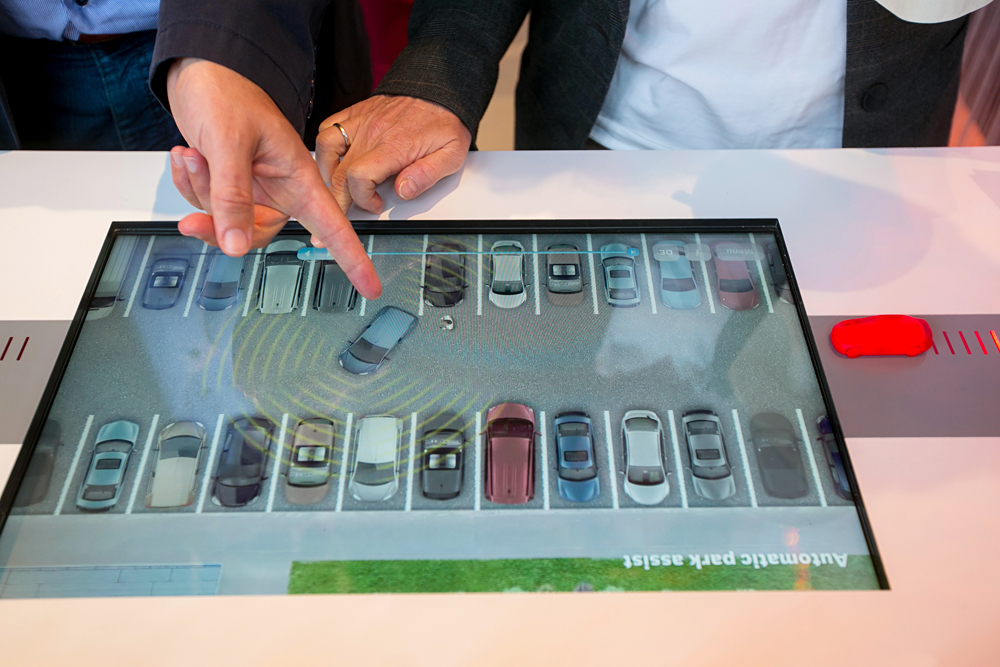Moscow to launch driverless buses and triple its technoparks

There are currently 20 technoparks operating in the Russian capital. Photo: Visitors look at a Moscow map at the 2016 Moscow Urban Forum at the Manezh Central Exhibition Centre.
Anton Novoderezhkin/TASSDriverless buses will appear on the streets of Moscow during the 2018 World Cup, Russian Deputy Prime Minister Arkady Dvorkovich announced at the Moscow Urban Forum, reports the TASS news agency.
Driverless public transport will mark the first phase of the Russian capital’s technological transformation, said Dvorkovich at the event, which ran from June 30 to July 3.
Earlier, an eight-passenger driverless bus project was introduced in June 2016 at the St. Petersburg International Economic Forum. Equipment for the new bus will be 60-percent made in Russia, Alexei Bakulin, the managing director of the Volgabus holding company that developed the project, said at the time.
Singapore, Asia’s financial center and one of the world’s most modern cities, will start testing driverless public buses as early as this year.
Metropolises have common problems
The world’s biggest metropolises all over the world face the same problems, Moscow mayor Sergei Sobyanin said at the Moscow Urban Forum.
“Large cities are the first to experience all the challenges and problems. But they too have more opportunities for development,” he added.
According to the latest data from the Demographia World Urban Areas yearbook, the word now has 36 megacities, metropolitan areas with a population of over 10 million people. One in every 12 people on the planet live in them.
Furthermore, nearly one in every three people on the planet now live in large cities with a population of over 500,000, more than the world’s total population in 1930.
“Some people think that the world’s biggest cities are engaged in fierce competition with each other. In fact, we cooperate, we have the same problems and this cooperation creates a huge synergy for development,” said Sobyanin.
He went on to add that the development of large cities prompts global decisions, including from the point of view of technological development.
“Cities rather than countries and nations are the foundation of the world of the future, and if we don’t know how to combine technologies with city-dwellers’ wishes, they will not work,” said Anthony Mallows, Director of Masdar City,
Number of technoparks to triple
To promote the development of technological initiatives, Sergei Sobyanin announced that over the next several years Moscow will triple its number of technoparks, special areas for developing innovation business.
There are currently 20 technoparks operating in the Russian capital, with a total area of about 750,000 square meters. A total of 20,000 people are employed at the city’s technoparks.
According to Oleg Bocharov, head of the Moscow city department of science, industrial policy and entrepreneurship, technoparks do not only help the innovation economy and create jobs, they also become new urban development centers.
“Moscow has 120 high-tech universities and institutes, but they do not have access to the market. Our task looking forward is to change that: To prove that the city can offer a decent realization of intellectual capital,” said Bocharov.
An annual event first held in 2011, the Moscow Urban Forum is an international conference devoted to city planning, architecture, urban economy and development.
In 2016, the forum was attended by a total of 4,208 delegates from 42 countries, including the U.S., China, Austria, the Philippines, Japan, and South Korea.
Read more: Russians take science to new extremes
Subscribe to get the hand picked best stories every week
All rights reserved by Rossiyskaya Gazeta.
Subscribe
to our newsletter!
Get the week's best stories straight to your inbox

